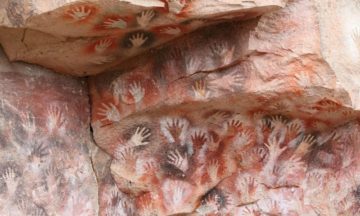Steven Poole in The Guardian:
 So are we really essentially the same animals as the early Homo sapiens hunting and gathering on the savannahs? Dartnell thinks so. “The fundamental aspects of what it means to be human – the hardware of our bodies and the software of our minds – haven’t changed.” This is, indeed, the assumption behind evolutionary psychology, which seeks to explain modern human behaviour in terms of what is hypothesised to have been adaptive for our cave-dwelling ancestors. But his mainframe-age metaphor of hardware and software is old hat and inaccurate. We now know that the human brain exhibits substantial neuroplasticity: in other words, the “software” can change the “hardware” it’s running on, as is not the case for any actual computer.
So are we really essentially the same animals as the early Homo sapiens hunting and gathering on the savannahs? Dartnell thinks so. “The fundamental aspects of what it means to be human – the hardware of our bodies and the software of our minds – haven’t changed.” This is, indeed, the assumption behind evolutionary psychology, which seeks to explain modern human behaviour in terms of what is hypothesised to have been adaptive for our cave-dwelling ancestors. But his mainframe-age metaphor of hardware and software is old hat and inaccurate. We now know that the human brain exhibits substantial neuroplasticity: in other words, the “software” can change the “hardware” it’s running on, as is not the case for any actual computer.
This “software” can also correct itself, which is to say that our thinking is corrigible: a fact that seems obvious in light of the history of disciplines such as mathematics, engineering, or indeed biology itself. Yet Dartnell, despite accepting the facts of cultural evolution, still avers that our “cognitive operating system has not had an update”, and worse, that we can’t do anything about many of its most characteristic errors.
This is the burden of his penultimate chapter about the familiar subject of cognitive biases. Deducing from news reports about violent crime that humans are unusually violent primates, for example, would be a case of “availability bias” – we attach more importance to examples of nastiness we can easily think of (those more “available” to memory) than to the untold examples of people being nice to each other that don’t make the headlines.
More here.
